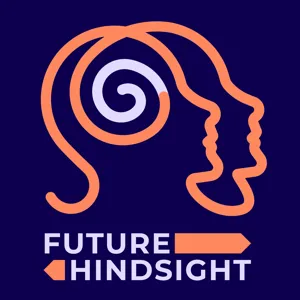Taiwan Through the Eyes of Butterfly Professor Hsu Yufeng

Explore "unsdg" with insightful episodes like "Taiwan Through the Eyes of Butterfly Professor Hsu Yufeng", "Shirah Mansaray: How To Impact The World With Philanthropy, Investing, And Micro-Loans", "Gipfelgespräche", "Why does it make Business Sense to drive Social Innovation?" and "What is Social Innovation?" from podcasts like ""Taiwan Talk", "Prowess: Stories Of Leaders Who Have An Edge with Ashley Crouch", "Blick nach vorne", "Let's Talk Sustainable Business" and "Let's Talk Sustainable Business"" and more!


As members of the human race, we are all so interconnected. And it is our job to fight against injustices and bring on positive changes to make the world a better place for everyone.
At a very young age, our guest Shirah Mansaray has already opened her eyes to any unequal treatment observed in her society. That motivated her to become an advocate and raise awareness for people suffering from discrimination and inequality. Now she’s the CEO of her NGO called “I am Somebody’s Child Soldier” and a Trustee of Amnesty International UK. Shirah is motivated to safeguard the mission, vision and charitable objectives of her organization and spearheads in supporting human rights activism.
Lend your ears to this influential woman as she moves hearts in this episode.
Today’s key takeaways are:
About Shirah:
Shirah excels in critical thinking and governance environments. As a Phd scholar, a Trustee for Amnesty International UK, and both a CEO and a NED in multiple Non-Governmental Organizations, she strives to improve policies and defend victims of injustices while delivering mental health services for them. She’s a light amidst all the uncertainty and darkness. Shirah is proof that we can put back the “human” to humanity.
Resources:
Shirah’s LinkedIn-https://uk.linkedin.com/in/shirah-z-mansaray
Amnesty International UK-https://www.amnesty.org.uk/
I am Somebody’s Child Soldier-https://www.iamsomebodyschildsoldier.org/


Following on from her previous conversation with Uwe Schulte, Kim Dabbs, Global Director Social Innovation at Steelcase explores how the company is profiting from the multitude of social innovation projects they are currently running both in the mid and longer term. All employees have a right to participate and suggest initiatives. Driving communal education improvement projects and equity initiatives, helps to improve the skills and competencies of future employees. Internal employee engagement improves motivation, and engagement to improve environmental performance enables Steelcase sites to operate sustainably. Kim shares advice on how companies can kick-start their own journey to create social initiatives.

In this podcast, Kim Dabbs, Global Director Social Innovation at Steelcase, discusses the objective and application of social innovation. For Steelcase, reducing inequality, improving education, and creating a positive environmental impact are the core elements that help build the company purpose. Kim gives examples of community engagement and shows how the United Nations Sustainable Development Goals guide their priority setting. Integration into everyday business life is essential to their success.



The United Nations Sustainable Development Agenda for 2030 lists 17 goals designed to improve human well-being, while also managing the Earth’s resources for the future. We have been moving further from completing our environmental goals every year because well-being comes at the expense of the global environment. The sustainable development goals are a set of tools to maximize human well-being and minimize the negative effects of increased development. For instance, making sure everyone in the world has access to electricity is a well-being goal, and making sure that energy is clean is an environmental goal.
We currently undervalue the use of natural resources because our economic model is designed to maximize profits, not protect the environment. Prices need to accurately reflect the reality that these resources are finite and must be used as efficiently as possible. No one uses more money than necessary to purchase a good or service, but all of us use more resources than necessary to maintain our lifestyle. We are able to regulate a global economy; we should also be able to regulate the global commodities market of resources.
There are two types of tipping points in the climate change debate: environmental and social. Environmental tipping points include scenarios like losing all of the ice on the North Pole, which makes climate change much worse. There are also tipping points in social systems, such as the dramatic fall in smoking, or the use of seatbelts in cars. People can change, and consequently, societies can change very quickly. If we can manifest social tipping points around climate change that impact governance, our economic systems, our behavior, and our technology, we can mitigate the damage caused by climate change, and hopefully avoid the most devastating tipping points in our environment.
Katherine Richardson is the Leader of the Sustainability Science Centre at the University of Copenhagen and a Professor of Biological Oceanography at the Center for Macroecology, Evolution, and Climate. She is also a member of the 15-person panel that wrote and delivered the 2030 United Nations Sustainable Development Goals.
You can follow her on Twitter @KRichardsonC.

Stay up to date
For any inquiries, please email us at hello@podcastworld.io